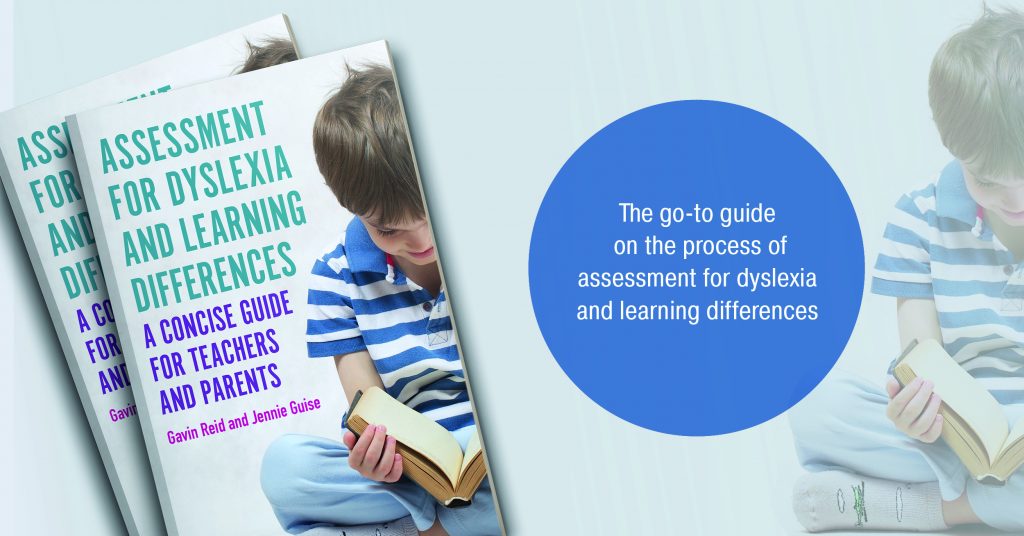‘Assessment for Dyslexia and Learning Differences: A Concise Guide for Teachers and Parents’ written by Gavin Reid and Jennie Guise, experienced dyslexia and learning differences consultants, is the go-to guide for any parent or teacher on the process of assessment for dyslexia and learning differences.
Read this extract from the book below on why dyslexia assessments are often important to understand the learning difficulty:
Why is an assessment important, and is it necessary? We find many parents and teachers, quite rightly, ask these questions, particularly if an independent assessment is requested. An independent assessment takes place usually outwith the school, but this is not always the case, and the school can sometimes arrange things so that the assessment takes place at school. This has the advantage that feedback can sometimes be given to the teacher (or teachers) and the parents at the same time. This emphasises the point made in the previous chapter that communication between all parties involved is a crucial aspect of an assessment. Schools will often have their own procedures for assessing children, but when the child is not responding – despite appropriate intervention – a further, detailed assessment may be requested using an independent, registered psychologist, or a specialist teacher. If the problem seems to be speech-orientated, a speech and language specialist may be referred to. If it is more an issue with co-ordination and movement, then an occupational therapist referral may be appropriate. There may therefore be a number of different reasons why an assessment is required, but there are usually some common factors.
Reasons for school and independent assessments
• The assessment may be used for diagnostic purposes – that is, to diagnose if there is an issue, and to identify whether the difficulties meet the criteria for dyslexia, or some other SpLD.
• The assessment may be used as a predictive tool, to obtain information that can help the teacher predict how the child will cope with particular aspects of the curriculum. Used in this way, however, the information from the assessment may in fact be misused; it may lead to unnecessary curricular restrictions being placed on the child. This is one of the ‘misuses’ of IQ tests, since the case may arise where a child assessed as having a low IQ is disadvantaged in terms of curricular access and expectation, and, of course, this should be avoided at all costs.
• The assessment may be used in a ‘normative’ way, by comparing the child with his or her peers. Some caution should be applied here, as the school may have a higher-than-average ability–achievement ratio. Nevertheless, it may still be useful to obtain some kind of data on how the child is progressing in relation to others in the same age range.
• If the child has already been assessed, then further assessment can contribute to monitoring and review. This is an important element of any assessment, since it can help to measure the impact of teaching. Schools will usually prefer ongoing assessment. This is very important as progress sheets can be obtained in termly/semester reports.
• Assessment should be linked to teaching. There should be a prescriptive element to assessment, and it should provide suggestions for teaching approaches or programmes. This is a very important element in all assessments, but particularly independent assessments, as often this type of assessment can lend itself to a wider view of teaching and learning, and can suggest approaches in addition to those used in the school.
If you would like to read more articles like this and get the latest news and offers on our health care books, why not join our mailing list? We can send information by email or post as you prefer. You may also be interested in liking our Special Education and PSHE Facebook page.
